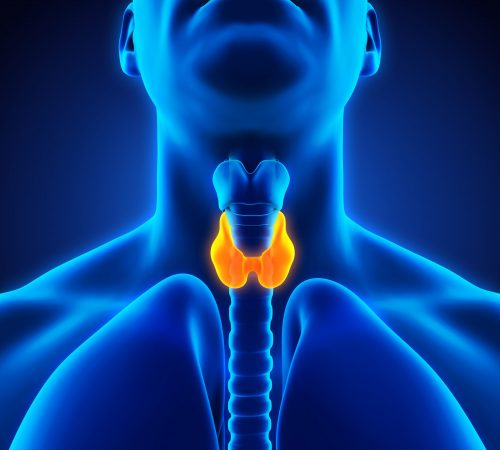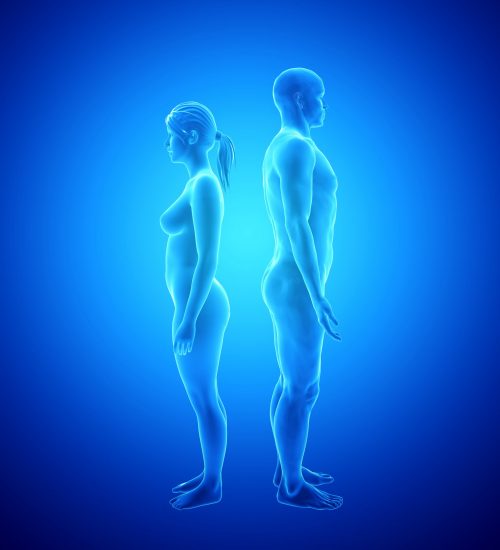TRT & The Prostate – Friend or Foe?
In the UK, about 1 in 8 men will get prostate cancer at some point in their lives – Prostate Cancer UK
The incidence of prostate cancer in men is highest in men with low testosterone(1). Increased age is a risk factor for prostate cancer. Testosterone levels naturally decline with age. Should we ignore this association? Can we make the assumption therefore that having a normal testosterone lowers your risk of prostate cancer? Should Testosterone Replacement Therapy (TRT) therefore be considered protective against prostate cancer in men with Testosterone Deficiency Syndrome??
The latest research demonstrates that TRT is NOT associated with an increased risk of prostate cancer or worsening lower urinary tract symptoms.(2) This is great news and should dispel some of the reservations clinicians have in recommending testosterone as a safe and effective medical therapy.
Testosterone is broken down in part to Dihydrotestosterone which exerts its effects on the prostate gland to help production of prostatic fluid. This fluid essentially feeds the semen and helps with lubrication so that it can be propelled in your ejaculate.
The aim of TRT is to optimise your testosterone levels within normal parameters. Testosterone is the male-sex hormone, however, its importance is far more wide reaching than that, it is pivotal to men’s health. It makes perfect sense that maintaining a healthy physiological state, with a healthy testosterone level for as long as possible is surely beneficial? There are some factors you can’t alter like your genetic make-up, ethnicity, race and age. You can however minimise factors that are under your control such as lifestyle, nutrition and exercise.
It should be noted that as prostate cancer is androgen receptive, testosterone will likely make the prostate cancer more aggressive. A recognised treatment is androgen depletion. It is therefore necessary to regularly screen patients for prostate cancer whilst receiving TRT. On the flip side of this, since the incidence is highest in men with low testosterone, it makes perfect sense to normalise it, despite this knowledge.
The aim is to minimise risk, in order, to maximise reward. Research and education are pivotal to altering attitudes. Sometimes it’s just plain old common sense.
Male Hormone Replacement therapy is gaining wider acceptance and acknowledgement within the medical community. However there is still a lack of long term, scientifically validated, research out there for some clinicians to use it without prejudice. More and more research is being conducted in this field, however I am concerned there isn’t the funding and inclination within the pharmaceutical and medical community to spur this forward to the degree it deserves.
Isn’t this when common sense should prevail? In order to maintain a healthy physiological state, we should essentially try and ensure all parameters are within the ‘normal’ range. Any disruption or alteration in this state will surely disrupt balance or homeostasis. Surely administering a bioidentical hormone has an advantage over taking a chemical that is scientifically designed to alter one’s physiology?
Exposure to environmental toxins, including agents that cause inflammation and infection, will all increase the risk of cell mutation(3). A healthy lifestyle, good nutritious food and exercise will give your body the best platform to fend off free radicals and potential carcinogens.
Managing risk is an important part of life, why not give your mind and body the best chance of health? Lead a full and productive life full of passion. Today is the first day of the rest of your life…
Dr Robert Stevens MBChB MRCGP Dip.FIPT
References:-
(1) Is a decreased serum testosterone level a risk factor for prostate cancer? A cohort study of Korean men. Shin BS et al, Korean J Urol. 2010;51:819–823
(2) TRT is not associated with increased risk of prostate cancer or worsening of lower urinary tract symptoms: prostate health outcomes in the Registry of Hypogonadism in Men. – Debruyne FM, Behre HM, Roehrborn CG, et al. BJU Int. 2016.
(3) Inflammation in prostate carcinogenesis – Angelo M. De Marzo et al Nature Reviews Cancer 7, 256-269 (April 2007) | doi:10.1038/nrc2090


